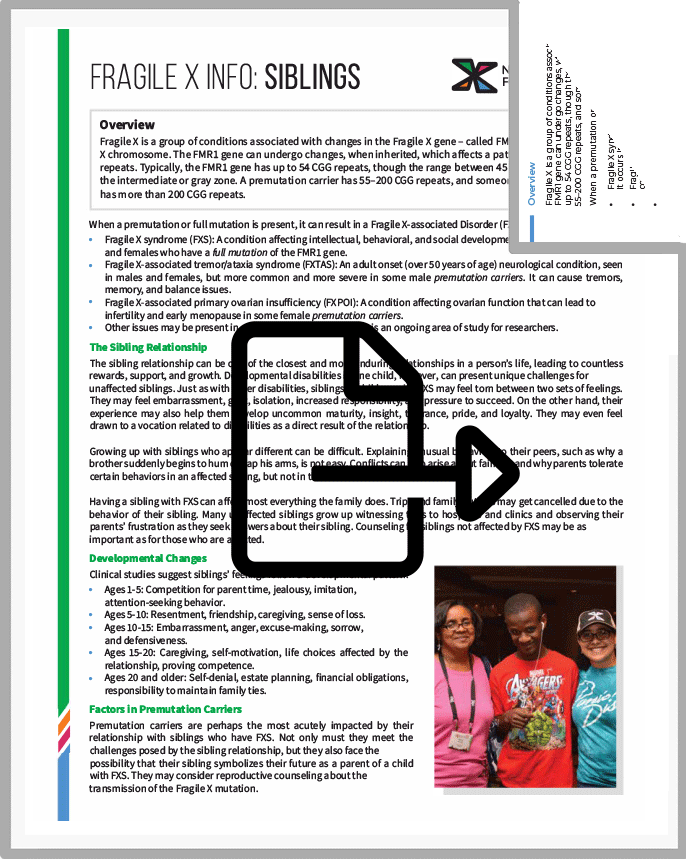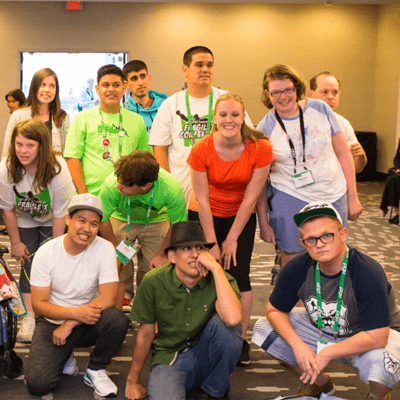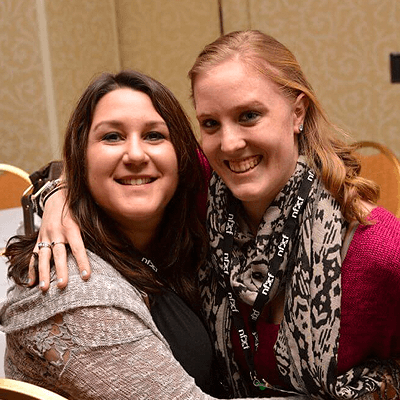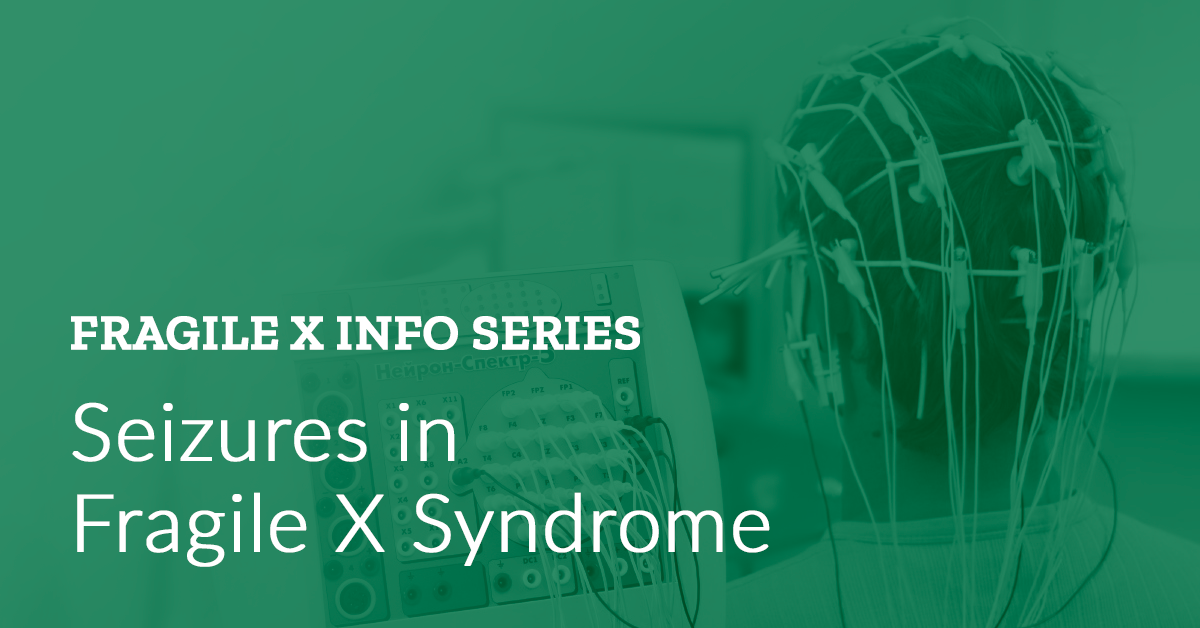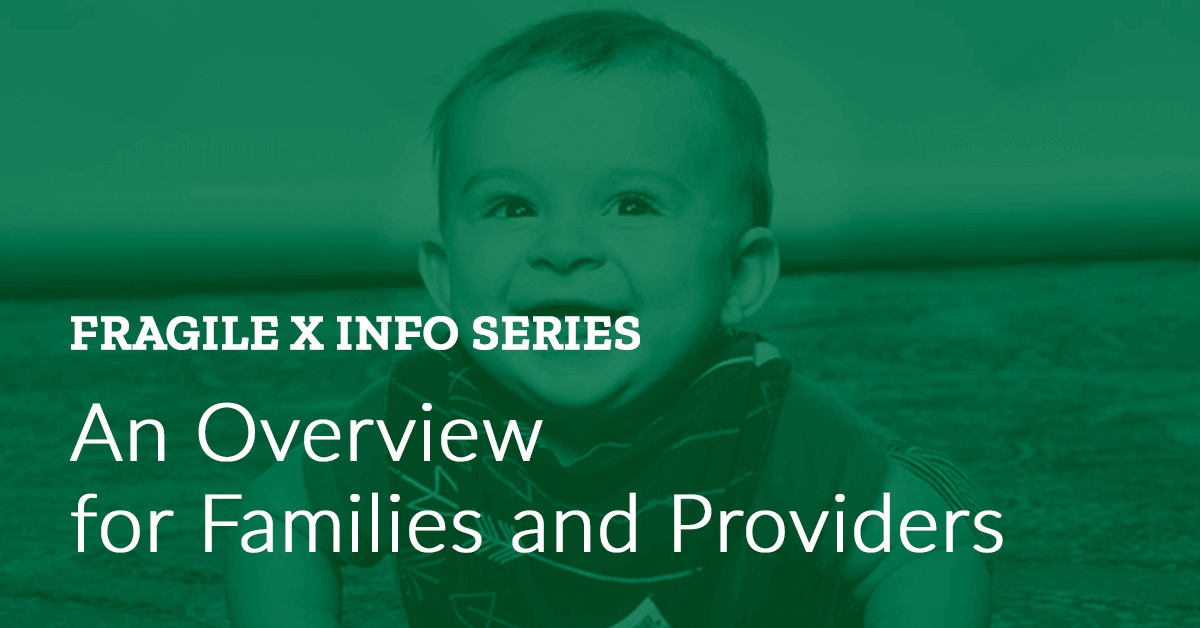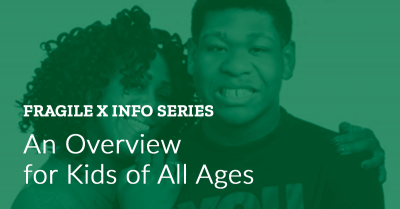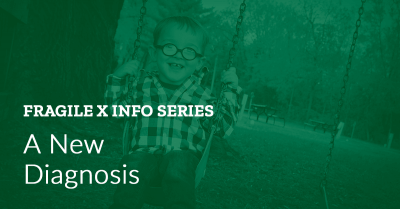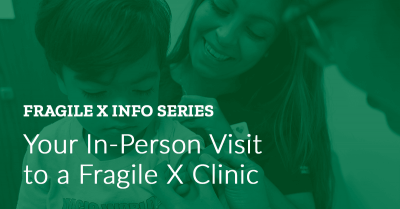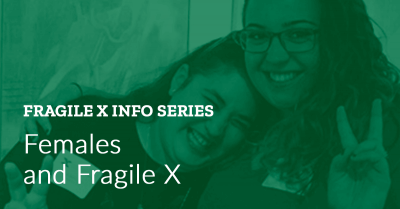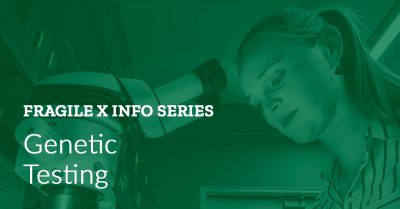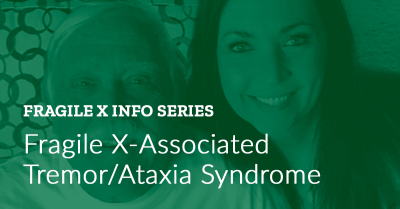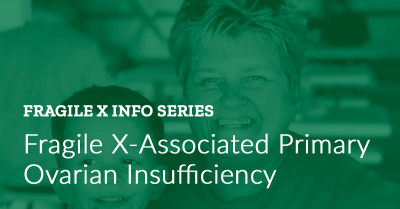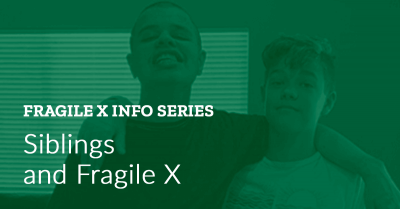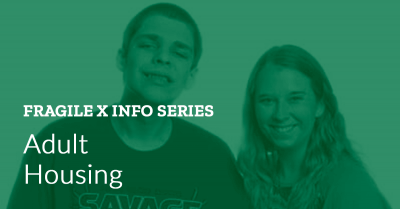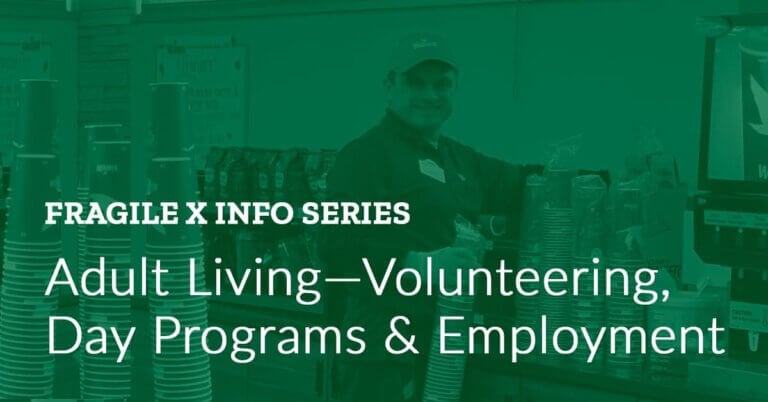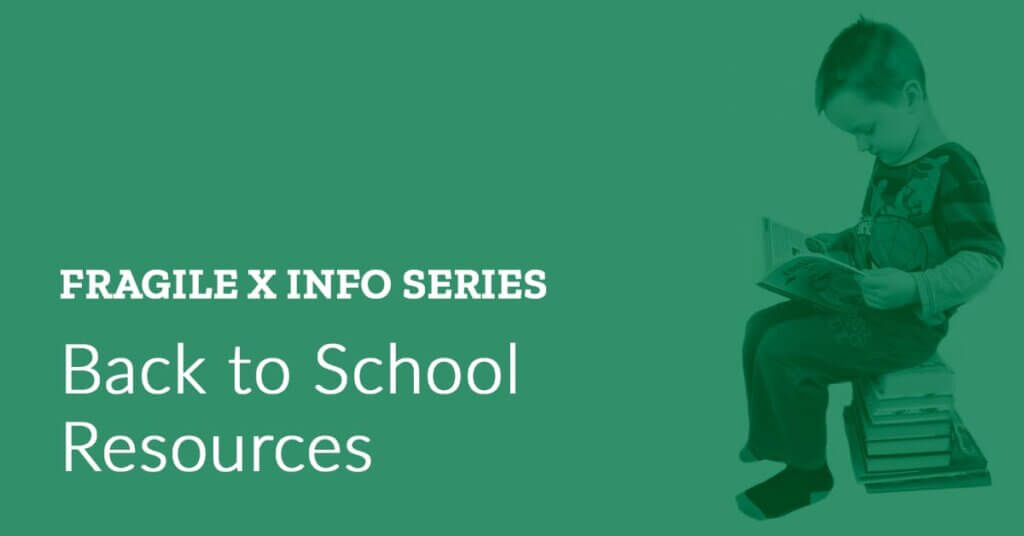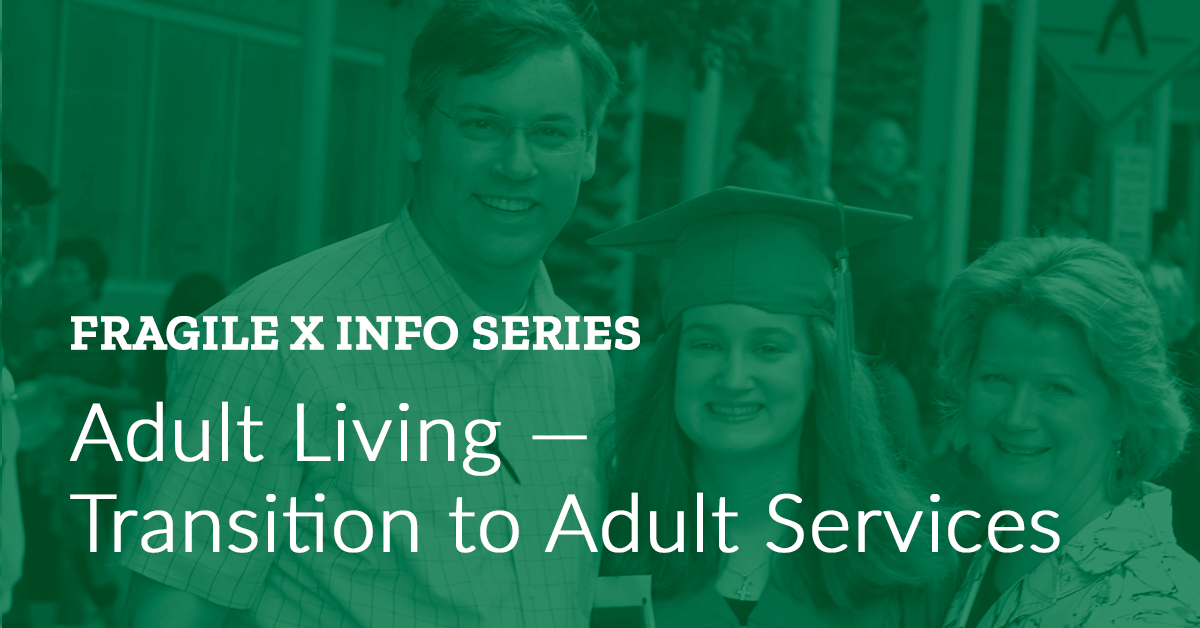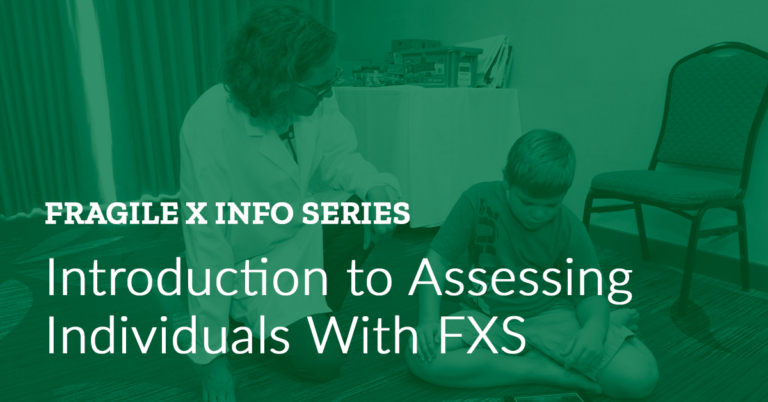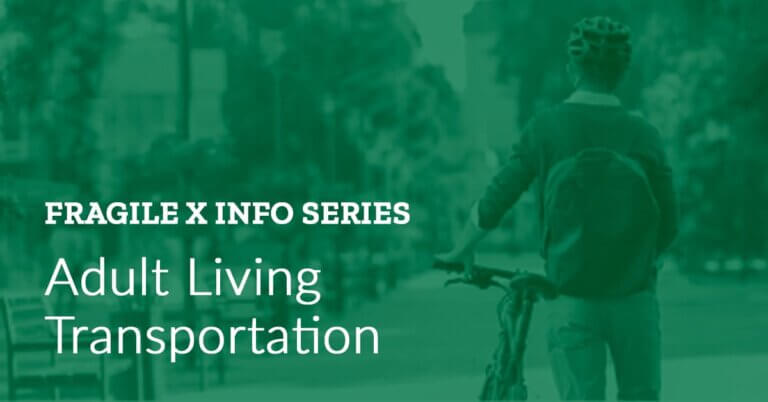Fragile X Info Series
overview of fragile x syndrome and associated disorders
Fragile X is a group of conditions associated with changes in the Fragile X gene — called FMRl — located on the X chromosome. The FMRl gene can undergo changes, when inherited, which affects a pattern of DNA called CGG repeats. Typically, the FMRl gene has up to 54 CGG repeats. The range of 45–54 repeats is called the intermediate or “gray zone.” A premutation carrier has 55–200 CGG repeats, and someone with a full mutation has more than 200 CGG repeats.
When a premutation or full mutation is present, it can result in a Fragile X-associated disorder (FXD). These include:
FXS
FRAGILE X SYNDROME
FXS is a condition affecting intellectual, behavioral, and social development. It occurs in both males and females who have a full mutation of the FMRl gene.
FXTAS
FRAGILE X-ASSOCIATED TREMOR/ATAXIA SYNDROME
FXTAS is an adult onset (over 50 years of age) neurological condition, seen in males and females, but more common and more severe in some male premutation carriers. It can cause tremors, memory, and balance issues.
FXPOI
FRAGILE X-ASSOCIATED PRIMARY OVARIAN INSUFFICIENCY
FXPOI is a condition affecting ovarian function that can lead to infertility and early menopause in some female premutation carriers.
SIBLINGS WITHOUT FRAGILE X
Siblings not affected by FXS and who do not carry the gene mutation may experience a type of “survivor’s guilt.”
They may ask, “Why did I inherit a normal X chromosome while others in my family did not?”
They may be more likely to feel an obligation to help care for the sibling and pressure to succeed.
Others worry about the responsibility they may face when their parents can no longer fill the caregiving role for their sibling.
OTHER PREMUTATION CONDITIONS
Other issues may be present in premutation carriers, and this is an ongoing area of study for researchers.
The Sibling Relationship
The sibling relationship can be one of the closest and most enduring relationships in a person’s life, leading to countless rewards, support, and growth. Developmental disabilities in one child, however, can present unique challenges for unaffected siblings.
Just as with other disabilities, siblings of children with FXS may feel torn between two sets of feelings. They may feel embarrassment, guilt, isolation, increased responsibility, and pressure to succeed. On the other hand, their experience may also help them develop uncommon maturity, insight, tolerance, pride, and loyalty. They may even feel drawn to a vocation related to disabilities as a direct result of the relationship.
Growing up with siblings who appear different can be difficult. Explaining unusual behaviors to their peers, such as why a brother suddenly begins to hum or flap his arms, is not easy. Conflicts can also arise about fairness and why parents tolerate certain behaviors in an affected sibling, but not in the others.
Having a sibling with FXS can affect most everything the family does. Trips and family outings may get cancelled due to the behavior of their sibling. Many unaffected siblings grow up witnessing trips to hospitals and clinics and observing their parents’ frustration as they seek answers about their sibling.
Counseling for siblings not affected by FXS may be as important as for those who are affected.
DEVELOPMENTAL CHANGES
Clinical studies suggest sibling’s feelings follow a developmental pattern:
AGES 1–5
Competition for parent time, jealousy, imitation, attention-seeking behavior.
AGES 5–10
Resentment, friendship, caregiving, sense of loss.
AGES 10–15
Embarrassment, anger, excuse-making, sorrow, and defensiveness.
AGES 15–20
Caregiving, self-motivation, life choices affected by the relationship, proving competence.
AGES 20 AND OLDER
Self-denial, estate planning, financial obligations, responsibility to maintain family ties.
FACTORS IN PREMUTATION CARRIERS
Premutation carriers are perhaps the most acutely impacted by their relationship with siblings who have FXS. Not only must they meet the challenges posed by the sibling relationship, but they also face the possibility that their sibling symbolizes their future as a parent of a child with FXS.
They may consider reproductive counseling about the transmission of the Fragile X mutation.
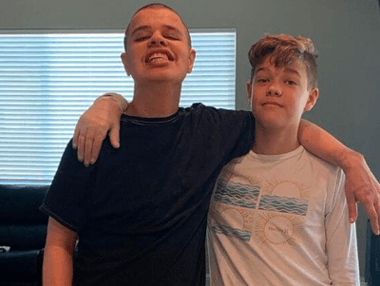
Aggression
Approximately one-third of individuals with FXS exhibit aggressive behavior.
Siblings are sometimes the target, and they may experience anger toward their affected sibling. While they may or may not understand the cause of their sibling’s behavior, they need to feel safe themselves. This can be difficult and confusing. Parents can recognize the potential for conflicting emotions and help siblings identify and verbalize their feelings. They need to know it is not acceptable for their affected sibling to act aggressively toward them.
Empowerment Ideas
For Parents
Provide siblings with ways to manage the stress of having a sibling with FXS. Possibilities include:
- A private area in the home.
- Headphones for music to reduce environmental noise.
- Regular, planned activities that are not related to FXS or their sibling, such as sports, dance, or horseback riding.
- If married, even a day trip with just the two of you can be a way to stay connected.
For Siblings
Consider activities to educate friends and teachers at school, e.g., preparing a presentation on FXS or on certain characteristics of those affected by it.
Supporting Siblings
Peer groups are often helpful for siblings of children with FXS. It is a chance to meet others in similar situations and share their experiences in a safe environment. See the resources below. Some siblings may benefit from regular therapy with a trained professional.
Sophia James: Life as a Sibling of Someone with Fragile X Syndrome
Sophia James, a top 10 finalist in the latest season of American Idol, delivered the keynote address opening day, May 29, 2020, of the 17th NFXF International Fragile X Conference Virtual Series.
Talking with Your Children about Fragile X: Why, How, and When?
When parents first learn about Fragile X, their primary focus is on the meaning of the diagnosis for their child with the syndrome. Once the dust settles though, they begin to think about the genetic implications for other family members, and in particular, for typically developing siblings who may or may not carry a Fragile X mutation.
How We Can Help
The NFXF is dedicated to serving the entire Fragile X community to live their best lives by providing the knowledge, resources, and tools, until, and even after more effective treatments and a cure are achieved. Learn more with Fragile X 101.
If you have questions please reach out to us at treatment@fragilex.org or call (800) 688-8765.


